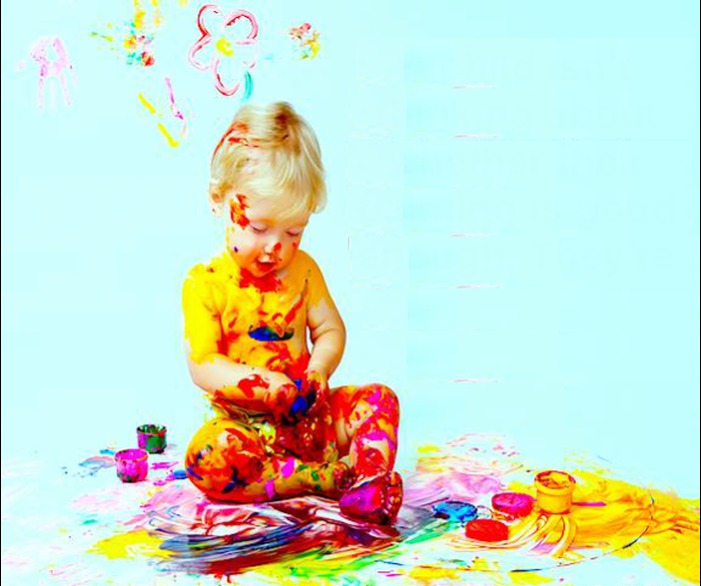- Home
- Site Index
- About Me
-
My Books
- Book List & Themes
- Strictly for Adults Novels >
-
Tales from Portlaw
>
- No Need to Look for Love
- 'The Love Quartet' >
-
The Priest's Calling Card
>
- Chapter One - The Irish Custom
- Chapter Two - Patrick Duffy's Family Background
- Chapter Three - Patrick Duffy Junior's Vocation to Priesthood
- Chapter Four - The first years of the priesthood
- Chapter Five - Father Patrick Duffy in Seattle
- Chapter Six - Father Patrick Duffy, Portlaw Priest
- Chapter Seven - Patrick Duffy Priest Power
- Chapter Eight - Patrick Duffy Groundless Gossip
- Chapter Nine - Monsignor Duffy of Portlaw
- Chapter Ten - The Portlaw Inheritance of Patrick Duffy
- Bigger and Better >
- The Oldest Woman in the World >
-
Sean and Sarah
>
- Chapter 1 - 'Return of the Prodigal Son'
- Chapter 2 - 'The early years of sweet innocence in Portlaw'
- Chapter 3 - 'The Separation'
- Chapter 4 - 'Separation and Betrayal'
- Chapter 5 - 'Portlaw to Manchester'
- Chapter 6 - 'Salford Choices'
- Chapter 7 - 'Life inside Prison'
- Chapter 8 - 'The Aylesbury Pilgrimage'
- Chapter 9 - Sean's interest in stone masonary'
- Chapter 10 - 'Sean's and Tony's Partnership'
- Chapter 11 - 'Return of the Prodigal Son'
- The Alternative Christmas Party >
-
The Life of Liam Lafferty
>
- Chapter One: ' Liam Lafferty is born'
- Chapter Two : 'The Baptism of Liam Lafferty'
- Chapter Three: 'The early years of Liam Lafferty'
- Chapter Four : Early Manhood
- Chapter Five : Ned's Secret Past
- Chapter Six : Courtship and Marriage
- Chapter Seven : Liam and Trish marry
- Chapter Eight : Farley meets Ned
- Chapter Nine : 'Ned comes clean to Farley'
- Chapter Ten : Tragedy hits the family
- Chapter Eleven : The future is brighter
-
The life and times of Joe Walsh
>
- Chapter One : 'The marriage of Margaret Mawd and Thomas Walsh’
- Chapter Two 'The birth of Joe Walsh'
- Chapter Three 'Marriage breakup and betrayal'
- Chapter Four: ' The Walsh family breakup'
- Chapter Five : ' Liverpool Lodgings'
- Chapter Six: ' Settled times are established and tested'
- Chapter Seven : 'Haworth is heaven is a place on earth'
- Chapter Eight: 'Coming out'
- Chapter Nine: Portlaw revenge
- Chapter Ten: ' The murder trial of Paddy Groggy'
- Chapter Eleven: 'New beginnings'
-
The Woman Who Hated Christmas
>
- Chapter One: 'The Christmas Enigma'
- Chapter Two: ' The Breakup of Beth's Family''
- Chapter Three: From Teenager to Adulthood.'
- Chapter Four: 'The Mills of West Yorkshire.'
- Chapter Five: 'Harrison Garner Showdown.'
- Chapter Six : 'The Christmas Dance'
- Chapter Seven : 'The ballot for Shop Steward.'
- Chapter Eight: ' Leaving the Mill'
- Chapter Ten: ' Beth buries her Ghosts'
- Chapter Eleven: Beth and Dermot start off married life in Galway.
- Chapter Twelve: The Twin Tragedy of Christmas, 1992.'
- Chapter Thirteen: 'The Christmas star returns'
- Chapter Fourteen: ' Beth's future in Portlaw'
-
The Last Dance
>
- Chapter One - ‘Nancy Swales becomes the Widow Swales’
- Chapter Two ‘The secret night life of Widow Swales’
- Chapter Three ‘Meeting Richard again’
- Chapter Four ‘Clancy’s Ballroom: March 1961’
- Chapter Five ‘The All Ireland Dancing Rounds’
- Chapter Six ‘James Mountford’
- Chapter Seven ‘The All Ireland Ballroom Latin American Dance Final.’
- Chapter Eight ‘The Final Arrives’
- Chapter Nine: 'Beth in Manchester.'
- 'Two Sisters' >
- Fourteen Days >
-
‘The Postman Always Knocks Twice’
>
- Author's Foreword
- Contents
- Chapter One
- Chapter Two
- Chapter Three
- Chapter Four
- Chapter Five
- Chapter Six
- Chapter Seven
- Chapter Eight
- Chapter Nine
- Chapter Ten
- Chapter Eleven
- Chapter Twelve
- Chapter Thirteen
- Chapter Fourteen
- Chapter Fifteen
- Chapter Sixteen
- Chapter Seventeen
- Chapter Eighteen
- Chapter Nineteen
- Chapter Twenty
- Chapter Twenty-One
- Chapter Twenty-Two
-
Celebrity Contacts
-
Thoughts and Musings
- Bereavement >
- Nature >
-
Bill's Personal Development
>
- What I'd like to be remembered for
- Second Chances
- Roots
- Holidays of Old
- Memorable Moments of Mine
- Cleckheaton Consecration
- Canadian Loves
- Mum's Wisdom
- 'Early life at my Grandparents'
- Family Holidays
- 'Mother /Child Bond'
- Childhood Pain
- The Death of Lady
- 'Soldiering On'
- 'Romantic Holidays'
- 'On the roof'
- Always wear clean shoes
- 'Family Tree'
- The importance of poise
- 'Growing up with grandparents'
- Love & Romance >
- Christian Thoughts, Acts and Words >
- My Wedding
- My Funeral
- Audio Downloads
- My Singing Videos
- Bill's Blog
- Contact Me
 "Thought for today: "Today is the last day of the month of February. I have often wondered, were I a centenarian and had I been born during a Leap Year on February 29th, would I be entitled to receive a card from the queen after a hundred years of life or would I still be officially regarded as being only 25-years-old; having experienced only twenty-five February 29ths since my birth? This got me thinking about the rarest of creatures on the planet and that led my mind onto the most unique of things to touch us in life. How few of us have ever heard of the Maned Wolf? Not many I suspect. In spite of its appearance and name, it is neither fox nor wolf. The Maned Wolf, which is native to South America is actually the only known surviving member of the Chrysocyon genus and is not closely related to any living canid (any of a family (Canidae) of carnivorous animals that includes the wolves, jackals, foxes, coyote, and the domestic dog). It is virtually extinct and exists today without any close family members of its species. It shared a common ancestor with the Falklands Island Wolf around six million years ago. This creature got me thinking what it must be like to have no existing ancestral line or close family members alive today; to have no parents, brothers, sisters, nieces, nephews, uncles, aunts or cousins alive, with whom there is a natural blood bond. I didn't have to think too long or hard as to what had been the most needed of all things in my life; to belong to a loving family in my childhood, adulthood and old age. Family has always been important to me and I strongly suspect you also. Whenever asked what legacy my parents left me when they died, I have no hesitation in replying, 'My six brothers and sisters, along with the knowledge that they loved me everyday of my life and told me so.' It matters not whether we call it clan, tribe or family; we all need one to feel a whole person with our past, present and future, because whatever we are usually runs in the family. Being brought up in a healthy family gets us used to personal problems and conflict that we can relate to. Having a family member that is autisic, disabled, manic depressive, addictive to this or that; indeed any kind of person more usually found in a minority group, helps us better understand such people types when we enounter them outside the family. Family is one of nature's masterpieces in the making; a link to our past, the purpose of our presence and a bridge to our future. Far too often these days people tend to place too much emphasis upon giving one's child enough material things. No family can ever be so poor as to not pay attention to the needs of each other. Lots of love, oodles of understanding and sufficient sensitivity to their feelings is all they require to grow up as strong swimmers in the river of respect. Be in no doubt; a family is the best support system ever devised through any union. I always feel exceptionally sad for those people, who often through no fault of their own never felt loved by their parents growing up or who hasn't spoken to a particular family member for many years because of some dispute. When bad blood between brother and brother flows within a family, the nucleus of civilisation between all family members can collapse. The unit becomes like a deserted park where parents and children have stopped having fun together. I know that in close-knit families there is a bond of 'togetherness' so strong that no outsider will ever separate. If only all newly-wed couples could come to appreciate this there would be few arguments and fall outs about 'the inlaws', as it is the most natural thing in the world for a child to be close to mum and dad. You don't choose your family. They are God's gift to you as you are to them; not only an important thing, but everything! As the eldest of seven children, like all first borns I spent many of my earlier years in the role of protector to my siblings and looking out for them. It has been one of the warmest of presents in my current illness to know that during the latter part of my life, along with my wife Sheila, they now look out for me. A number of years ago while holidaying in Ireland where I was born, my vacation was cut short when my cousin Teresa in County Kilkenny suddenly died. I travelled to the funeral, which like all Irish funerals was held to mark the burial of a saint and a scholar. In the crowded pub where some of the funeral attenders gathered afterwards, I was standing back to back with two men. The older one was telling the other that Paddy Forde was the finest footballer ever to come out of Kilkenny and to go on and play for Ireland. As they were talking about my father I was naturally interested enough to continue evesdropping. The younger man replied, 'He was my father's brother you know, and with my sister Teresa gone, I have no Forde family left.' At this stage of the conversation my cousin John was starting to sound like a Maned Wolf whose family line was now extinct. I introduced myself and we have laughed and joked about the incident ever since. All my brothers and sisters have embraced John as 'one of our own' along with his beautiful wife Lynne and we now maintain regular contact. Which brings me to a saying of my dearly departed mother to end with when she said to me, 'Billy, if you're Irish, it doesnt matter where you go in the world; you'll always find family.' " William Forde: February 28th, 2015. 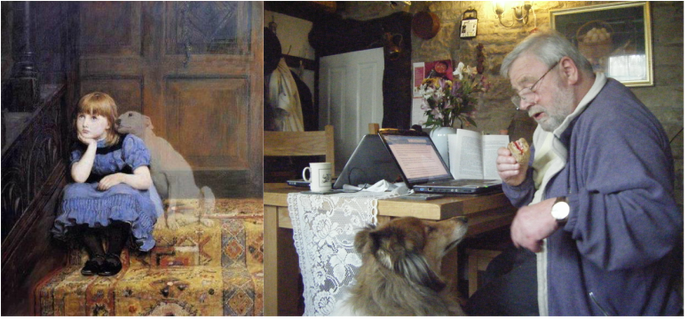 Thought for today: "The first real friend I ever lost was when I was eight years old. His name was 'Ruff', or at least that was the name I gave him because of his shaggy appearance. He was a cross between a terrier and a collie. In fact, 'Ruff' was never my dog, but I played with him daily and took him for walks on a piece of string across the fields behind our house. His owner was a widow who lived near by on Roundwell Road and she had been left with the dog after her husband had died. She was an old lady and just before she died, so did 'Ruff.' I must have cried for over a week and silently swore that I'd never lose another friend; because I wouldn't have one. The years went by and I was forty years old and on my second marriage and second brood of children before I finally relented and gave in to the demands of my wife and children for a Labrador pup. It was one of the best decisions I had ever made and while it fell to me to train it, feed it and walk it after the initial 'love in period' had transpired, it was nice to have a creature welcome me home, do my bidding unquestionably and be at my side whatever my mood happened to be at the end of a hard day's work. As my children William and Rebecca grew, we were to have three Labradors in succession. One was called 'Blackie'; named after my wife's first dog as a child. The second was a black Labrador called Abbey, as I was reading the first of Jane Austen's novels (Northanger Abbey) at the time, and the last was a black Labrador called Ettie, who was named in memory of my 'Adopted Mum' (Henrietta Denton), who took me under her wing when my real mother died. As each of these three loving creatures lived and died, my children grew and the heartache educated them. And while it was a fearful thing to allow oneself to love again what death can touch, it pleased me immensely for William and Rebecca to have been a part of their lives and deaths. As long as Blackie, Abbey and Ettie lives on in our memories, they can never be truly forgotten. When I first met my wife Sheila she had two Rough Collies, 'Prince' and 'Lady.' I am so pleased that she had me to comfort and share her loss when Prince sadly died. Today, 'Lady' has become as much my dog as Sheila's. She is the nicest and most gentle of creatures I have known and though Sheila be the mistress of both dog and house, both gracefully acknowledge me as being the 'leader of the pack' and rub noses with me whenever they require my attention. People who think dogs have no intelligence and don't understand their surroundings, know not dogs. I tell you most truly that after I discovered that I had a terminal illness, not only did Lady sense my change in temperament during my nine months of chemo treatment, but I swear she could smell the cancer in me. I know in my heart that she would lick it out and take it unto herself were the choice hers to make. If there is one thought that grieves me, given both our ages (lady is almost 12 years old now), it is that Sheila will have a double loss to deal with in the future when she loses me and Lady. I hope when that time comes, Sheila, that you get another dog from the Refuge Kennels and call him 'Billy' in my memory and the memory of those precious years when I was blessed to dwell with the two finest Ladies who ever graced my life." William Forde: February 27th, 2015. Thought for today:
"A playful child knows a happiness that no adult can ever know, because their happiness lies in 'the moment.' Unfortunately, there is a moment in our childhood when the door opens and lets the future in. The moment we stop believing in Santa......the moment we learn that lollipops don't grow on trees and that all money that comes out of a wall isn't free......the moment we grasp that creatures we love will one day die........the moment we start to see a difference between ourselves and other children; this is the moment our childhood innocence is lost. As an adult we grow to understand that we have choices. We can choose to live in the moment, dream of the future or dwell in the past. It is pointless to wait for a moment; you have to experience it, not anticipate it. Indeed, I'd go so far as to say that the essence of life can be captured in a moment's insight better than a lifetime's experience. Forever is composed of nows. Don't let the moment pass by without tasting its pleasure of all it has to offer, however difficult your circumstances. Even in her housebound prison, Anne Frank knew how magical could be the moment when she wrote, 'How wonderful it is that nobody need wait a single moment before starting to improve the world.' We were given life from one moment of 'togetherness' shared between our parents and it therefore behoves us to find the pleasure, love and goodness in it. Take love for example. Love is a moment of madness mixed with ecstacy in which we learn that the best way to pay for it is to enjoy it. It descends on one with the illusion of being eternal and though we often find it difficult to know where love begins, it is easier to know when it has begun. From the time I was eleven years old and hungry hormones raged within my growing body, I remember feeling sexy and I could hardly wait for the moment when I was old enough to do something about it. Then there was the moment of my first real kiss; not that mild touching of lips like the licking of a postage stamp, but nothing less than the intertwining of tongues and the touching of tonsils. 'Being in love' leads one to treasure moments; meaningful and romantic times and sometimes silly. While I have been in love many times, I remember 'being in love' for the first time. It was 1963 and the place was Toronto, Canada and The Beatles were the number one group on the planet. Had the world entered into nuclear war at the time, it wouldn't have mattered. As far as me and Jenny were concerned, we were the only two people on earth that counted. It was a wholly selfish moment of feeling insulated from any unhappiness around us. I recall wanting to impress her and to provide her with a moment she would never forget, so I used three month's wages on the romantic gesture of having a favourite eating place open up to the public half an hour later than usual, just so we could dine alone as 'a couple.' When my mother eventually learned of this extravance her only words were, 'Billy, a fool and his money are soon parted,' before adding,' And how come you spent all that money on her and came back to England without her?' At the time, the moment wasn't quite right for either of us to settle down to a life time's commitment. Retrospectively, we weren't too young; simply both too cautious. Today I know differently. I now believe with every bone in my body that if you love someone, you say it there and then, out loud. You anchor yourself in the present moment and are prepared to launch yourself on the crest of every wave that takes you both to where the tide next comes in. How many times after the death of a loved one have we heard the bereaved person say, 'What I wouldn't give for just one more moment of being with them to see them smile.....hear them laugh..... hold their hand.......to tell them that I love them and that I'll never stop loving them.' Finally, there are those times in our lives that I call our 'moments of wickedness', when we do something wrong and get away with it knowing that punishment will never be delivered for having been clever enough to have committed the perfect crime. During my first marriage, I loved trees and my wife didn't. In the corner of our back garden was a beautiful sycamore tree of over a hundred years in growth which she was constantly pestering me to get cut down. Being a nature lover, I naturally refused. Upon our subsequent separation and divorce, as I left the matrimonial abode for the final time, she made some snide comment about it being time for the sycamore 'to go also.' This thought angered me immensely. One week later, I contacted my friend Keith who worked in the Planning Department at the Huddersfield Council and between us we fixed it. One month later, the beautiful sycamore had a 'Preservation Order' on it, forbidding anyone to interfer with its growth and enabling it to grace the back garden of my ex-wife's house for another hundred years! It gave me a wicked sense of pleasure at the moment and for some time afterwards to know that when my ex and the new man in her life next looked out of the window holding hands and saw the sycamore, it would be me who they'd think of. 'Sheila, what are you doing in that bathroom.You've been there half an hour. Hurry up and come to bed, I've something to show you.' 'Be there in two minutes, Bill.' 'No need to bother hurrying anymore. Take your time; the moment's passed.'" William Forde: February 26th, 2015. 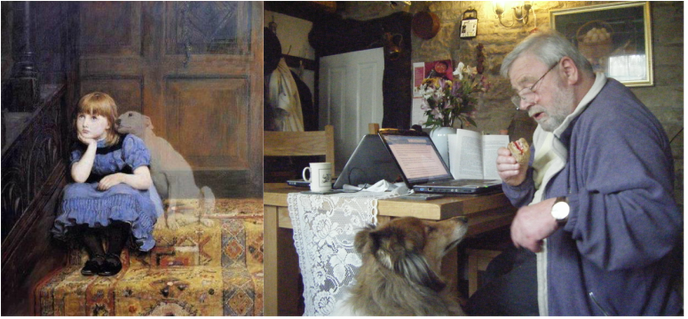 "Thought for today: "As a person who has had a number of dogs as companions, I can tell you that a dog is a creature never owned, but rented hopefully with the longest of leases. The first real friend I ever lost was when I was eight years old. His name was 'Ruff', or at least that was the name I gave him because of his shaggy appearance. He was a cross between a terrior and and a collie. In fact, 'Ruff' was never my dog, but I played with him daily and took him walks on a piece of string across the fields behind our house. His owner was a widow who lived near by on Roundwell Road and she had been left with the dog after her husband had died. She was an old lady and just before she died, so did 'Ruff.' I must have cried for over a week and silently swore that I'd never lose another friend; because I wouldn't have one. The years went by and I was forty years old and on my second marriage and second brood of children before I finally relented and gave in to the demands of my wife and children for a Labrador pup. It was one of the best decisions I had ever made and while it fell to me to train it, feed it and walk it after the initial 'love in period' had transpired, it was nice to have a creature welcome me home, do my bidding unquestionably and be at my side once more whatever my mood happened to be at the end of a hard day's work. As my children William and Rebecca grew, we were to have three Labradors in succession. One was called 'Blackie'; named after my wife's first dog as a child. The second was a black Labrador called Abbey, as I was reading the first of Jane Austen's novels (Northanger Abbey) at the time, and the last was a black Labrador called Ettie, who was named in memory of my 'Adopted Mum' (Henrieta Denton). who took me under her wing when my real mother died. As each of these three loving creatures lived and died, my children grew and the heartache educated them. And while it was a fearful thing to allow oneself to love again what death can touch, it pleased me immensely for William and Rebecca to have been a part of their lives and deaths. As long as Blackie, Abbey and Ettie lives on in our memories, they can never be truly forgotten. When I first met my wife Sheila she had two Rough Collies, 'Prince' and 'Lady.' I am so pleased that she had me to comfort and share her loss when Prince sadly died. Today, 'Lady' has become as much my dog as Sheila's. She is the nicest and most gentle of creatures I have known and though Sheila be the mistress of both dog and house, both gracefully acknowledge me as being the 'leader of the pack' and rub noses with me whenever they require my attention. People who think dogs have no intelligence and don't understand their surroundings, know not dogs. I tell you most truly that after I discovered that I had a terminal illness, not only did Lady sense my change in temperament during my nine months of chemo treatment, but I swear she could smell the cancer in me. I know in my heart that she would lick it out and take it unto herself were the choice hers to make. If there is one thought that grieves me, given both our ages (lady is almost 12 years old now), it is that Sheila will have a double loss to deal with in the future when she loses me and Lady. I hope when that time comes, Sheila, that you get another dog from the Refuge Kennels and call him 'Billy' in my memory and the memory of those precious years when I was blessed to dwell with the two finest Ladies who ever graced my life." William Forde: February 27th, 2015. Thought for today:
"We all tend to hang out from time to time in places that others wouldn't want to be seen in, and which if anyone ever found out, would leave us highly embarrassed. Embarrassment is enough to make one person laugh, another cry and another lock themselves away in a room for six months before daring to show their face again. Whether you be the parent in a crowded lift who puts the blame on your five-year-old girl for your fart or the six-foot-tall guy who dare not admit to having seen 'The sound of Music' ten times as a seventeen-year-old, we have all experienced such moments of monumental cringe at one time or another. And yet, we can learn 'to live with' our embarassment if we so chose; not 'like it', but 'live with it!' There have been so many occasions in later life that might have caused me embarassment at the time, had I not practised many years earlier 'how to live with my embarrassment without it making me blush.' When I was young I had a weak bladder and wet the bed most nights. This wasn't the nicest of experiences for my two younger sisters, as coming from a large family with fewer beds than occupants, the three of us shared a bed until I was ten. My next source of acute embarrassment came in my teens when four friends and I, as a dare, decided to streak naked across a field which was visible from the main road. We all disrobed and set off laughing loudly. An older, courting couple approached from the opposite direction and seeing them before me, my four friends hid down in the long grass, leaving me to run past them in my birthday suit. Have you ever been in the company of an ex girl friend or wife and their new partner. There is a moment when the eyes of the two men first meet and you feel smug knowing that you were there first, he feels highly uncomfortable knowing the same while she is feeling the most embarrassed of all as she mentally pictures both of you on the lavatory. My first wife who was very concerned with image, frequently felt embarrassed by what I might say at parties and she had this annoying habit of apologising for my words even before I'd put my foot in it. My second wife was a much different kind of person and didn't embarrass too easily during our early years together. The very first time we shared a hotel room in Scotland where the bath room was across the landing and not inside our bedroom, circumstances conspired and we both finished up locked out of our room, completely naked and with only one towel between two of us, covering our lower halves. As we tried to gain entry back inside our room without a key, two older women approached. As they neared, I did the only thing that any gentleman could do in the circumstances and fully draped the towel around my wife as I stood there proud and said 'Good morning, ladies.' Being ladies of higher breeding and without seeming to look across at us, one simply replied politely in her Miss Marple's voice, 'And a very good morning to you two also.' I was thirty before I came across Arnold Allan Lazarus, a South African psychologist, therapist and behaviourist who wrote dozens of books and who finished working his later years in America with groups of insecure individuals who became over-embarrassed by their failures and who were always saying and doing the wrong thing. Lazarus had this marvellous ability of teaching people how to 'accept' failure; not necessarily seek it out, but to accept it when it came along without rejecting self. He would set his group members tests and when they got the answers correct, he would mark them wrong. His clients would die with embarrassment on occasions, so he taught them to practise doing embarrassing things until they ceased to be embarrassed in their doing of them. He would give them homework exercises of walking up and down 52nd Street in rush hour wearing one red sock, one yellow sock and dressed like a goblin with a two-foot-long feather in their cap. During the following group session when he asked them what happened as they engaged in their homework exercises, most replied, 'Absolutely nothing at all. Everyone just passed us without comment' and a few even reported back, 'We made friends.' Lazarus essentially taught his clients that they could 'immunise themselves against embarrassment' through repeated practice, and so long as they didn't copulate in public view in the front window of Macy's Store or didn't do anything else illegal, then the worse that would happen is that they'd make a few new friends and nobody would lock them up in Sing Sing Prison and throw away the key! During my many groups that I ran in later years I always used the methods of Arnold Lazarus to reduce embarrassment. Sometimes it might involve group members learning to pull the funniest face they could to a group of strangers; on other occasions I'd teach people who could not say boo to a goose to open up their window and shout out at the top of their voice the very worst swear word they knew. Admittedly, often they'd start off with damn, but would rarely finish up with anything less than the 's....b....or...f' word. Having said all that, probably the most embarrassing thing that can happen in one's life is 'dying.' Dying leaves you without any shame or influence and wholly dependent on someone else to dress you and take care of your finer details. The day of your funeral is the one occasion when you just know that as soon as you have left the room, they will talk about you for the rest of the day!" William Forde: February 25th, 2015.  Thought for today: "I believe that everthing we do, everyone we meet and every obstacle we cross on our journey of life is put in our path for a purpose. Things happen because they were meant to be and fate is rarely prone to accidents and moments of chance. Admittedly, we need faith to travel unexplored paths of uncertain outcome, but we can usually bet that when we find a path without obstacles, it doesn't lead anywhere worth going. There are so many paths that we can follow and by a different path we each are prone to stray. There were many times in my life when I went down the wrong path and found myself in the wrong place; a time when I found myself without compass and moral moorings. Fortunately at such times fate stepped in and someone was there who believed in me enough to give me 'a second chance' to take a new path. Indeed, I was to stray from the path of goodness so frequently that like many a sinner, I needed 'second chances' four, five, six and many more times than I care to remember before I found the strength to stay on course. While my father, who'd had a hard upbringing as a child, often warned me against choosing the path of least resistance as the right one to follow, my mother had more hope in me and my eventual choice. She cared not which path I took so long as 'I chose it' and didn't walk it in blind ignorance or neglectful intent. The one piece of advice she gave me which I now paraphrase was, 'Remember, Billy, all the schooling and learning you've had is useless, unless you can use it to ease your journey and the passage of others.' So I tossed a coin in the air to decide which parents' advice was best for me to follow. You know, tossing a coin doesn't of itself decide one's future by which side it falls to ground. It is that briefest of moments when it is in the air that it comes to you what you really want. My mother's path seemed much easier to follow and along it, I'm happy to say, I found my puddle of peace and contentment. And while I haven't yet reached my journey's end, all of the beautiful people I've met along the way has made the travel worth any hurt or heartache I've been asked to bear. I hope it is a while yet before the finishing post comes into view as I still need a few more 'second chances' before I get some other things right." William Forde: February 24th, 2015. 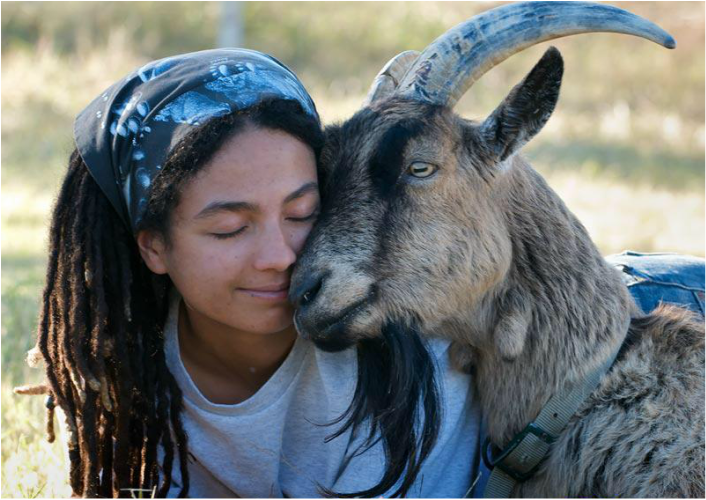 Thought for today: "There is no mistaking the love that sometimes exists between one creature and another. There is no mask that can hide love for long where it exists or simulate it where it doesn't. Every creature who expresses love for their fellow creature is doing God's will and is no less than divinity working in disguise. During our brief time on earth we are wise to take every opportunity to love all we can; every person and every creature we encounter. I once recall being told that the first thing necessary to win the love of another is 'opportunity.' Often this involves no more than being there at the right moment. Small opportunities can often be the beginning of great things to come and everyone who seizes theirs has a fair turn to be as loving and as happy as they please to be. Lose not your opportunity to love, for sometimes there is but one chance offered to get it right or else to live out life as a creature of permanent regret. It is strange how human eyes see the missed opportunity only after it has passed them by. It is as though it always looks bigger in its going than in its coming. I remember learning to spot the challenge in every threat I faced by seeking out the opportunity in any misfortunate circumstances presented. While it takes a day for the Earth to rotate on its own axis, it only takes a moment for mankind to stand on his head and see things differently. A week ago me and Sheila went to a small cinema across the road. A woman nearby was coughing throughout and though I moved seats far away from her, I still managed to contract a cold that persisted. My visit to the doctor's surgery his morning confirmed my immune system to be extremely low and I had to be immediately sent to the hospital for blood tests. If the white blood cell is too low, I may need to be admitted for observation as I could quickly develop fever if the anti biotics don't work. Whatever the results, I do not think that I will ever miss a good opportunity to enjoy myself as life really is too short to miss out on fun. The Chinese warn us that in each crisis of our existence lives opportunity. When written in Chinese, the word 'crisis' is composed of two characters. One represents danger; the other opportunity. So the next time the opportunity to love or be happy comes your way, why not risk it; it's there for the taking. "William Forde: February 23rd, 2015. 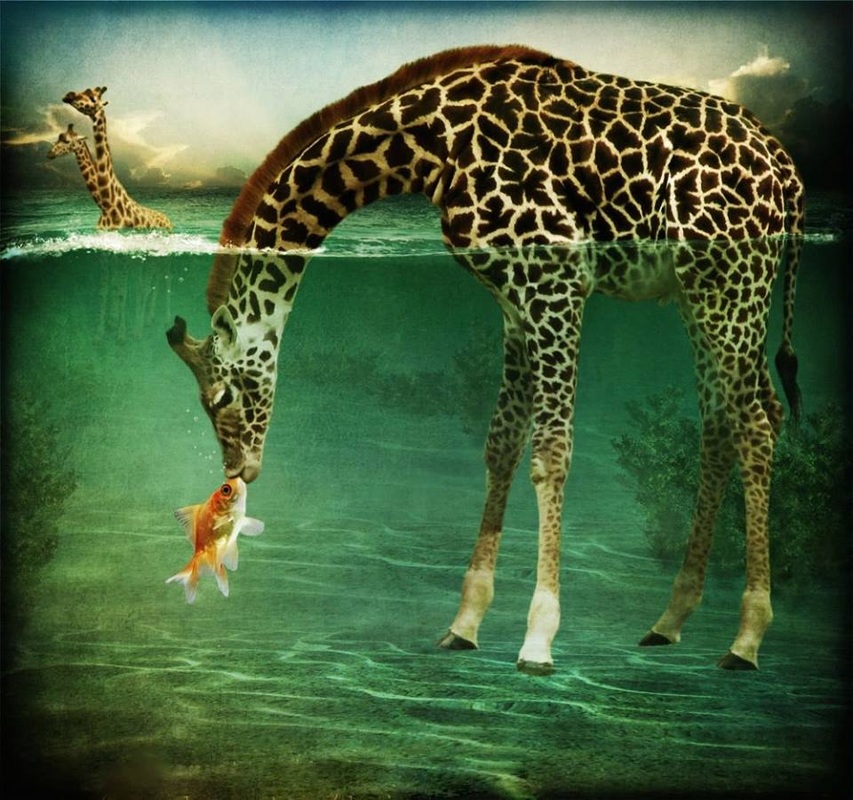 Thought for today: "It is hard indeed, some might say impossible, to do important things in life and not feel important for having done them! Most of us possess egos that are bigger than ourselves. When I was almost twelve, I incurred a serious traffic accident which threatened my life and then prevented my ability to walk for three years. During my hour at death's door, I promised God that if I lived I would try to make my life one for the good and service of others. God kept his part of the bargain and I have genuinely tried to honour mine ever since. Over the years, I have always performed voluntary work in one capacity or another, and have allowed all profit from the sale of my book publications to be given to charitable causes, believing that in about the same degree that we are helpful, so will we be happy. I have always been assisted in this regard by the ongoing help of literally hundreds of people. As securing regular press coverage was very important in the beginning to advance the charitable work we did, it became necessary and easier if I became the front man. As front man, it was I who invariably became the person most lauded and praised through the media. And despite all efforts of me publicly praising the hard work of numerous others in any success we achieved everytime I was interviewed by a media source, the names of others were rarely mentioned after editing had taken place. It was my name and my photograph that appeared in the press; it was me who was interviewed by the local radio and television channels, and me who was awarded a medal in the 1995 new Year's Honour's List and shook the Queen's hand. My 15 years of visiting schools daily, and the promotion of many social causes I wanted to raise awareness of, could never have been done without the help of so many backroom workers and nearly 900 national and international celebrities. The musical play I wrote and produced with Lottery money and which is freely accessable to any school globally, was only made possible by the two-years' hard work of eight dedicated people who worked alongside me throughout on the 'Mirfield Anger Management Committee' (MAMMA). We have the same unselfish commitment today in all walks of life; the hidden backroom workers who remain unseen by the public yet give freely of their time in the Charity Shops we enter. The thousands of volunteers; these unnamed heroes are the people who truly deserve the praise and everlasting gratitude of society. I have long ago ceased to be amazed by the unstinting generosity of so many good people in the world. As a child, my mother acted as the best example of kindness I have ever known. I never knew her to give less of herself than was asked for and grew up watching her always give more than was expected. My father, who played football as a young man for Ireland, was (unlike me), the most modest man I ever knew. Throughout his life he kept his light under a bushel and it was only years after his death that his family discovered how good and respected a man he'd been regarded in Kilkenny; the town where he was born. In marked contrast, I grew up in a different age and soon realised that if I wanted my influence and charitable work to be as extensive as possible, it would be better achieved if I learned to cultivate the press, maximise ongoing publicity, meet famous people and obtained their help, endorsement and support for my writings, charitable causes, and published books. At the height of my localised fame of having become a big fish in a small pond (between 1990 and 2003), I vaingloriously started to believe my own publicity, and for a brief while, I lost sight of my original goal; to advance a particular cause and not myself. I needed to relearn that one only ever truly becomes a person who does things that count, after they've stopped being a person who counts them. If I think hard and true, I know that it is the poor who have always given the most and it is those many millions of good neighbours and seemingly 'insignificant' folk who make the greatest difference to the world we live in: not the ones who are forever in the press like I used to be, but those modest souls who prefer to work below the radar and who give inconspicuously and receive no medals for their goodness. Such are the ones with the biggest heart and I salute them one and all. They are truly kind to the core; simply the best kind of person there is. It was only after having given large sums of money to charitable causes from the sales of my published books that I came to realise that my words and beliefs mattered more to others than any material wealth I ever gave. I came to realise that wherever 'goodness' exists, it comes from not sharing ones riches, but revealing to others their own. That is why I will spend an hour or more of every day for the rest of my life on my 'Thought for today''. I now know that is where I can be the most helpful and influential through the sharing of my strengths and weaknesses; in what I have done and what I have failed to do. In this manner, I may make my eventual death as hopefully meaningful as the life that preceeded it. One of my favourite writers was the poet Alexander Pope. I think the fact he had a crippled body initially spurred me to identify with him. Yet, crippled in body, he wrote the most beautiful of words and demonstrated the finest of thought. In his Epilogue to Satires (1738) he achieved in ten words what I have just taken hundreds to illustrate: 'Do good by stealth and blush to find its fame.'" William Forde: January 28th, 2018.  Thought for today: "From our laptops we learn that there are three main keys that we must use if we are to enjoy life; CTRL+ALT+DEL. These three little keys to life's enjoyment remind us to first control ourselves, next to look for alternative solutions in every problem area that we encounter and finally to delete all situations from our life that invariably gives us tension! I recall many years ago, a friend called Ron in Canada who gave me some excellent advice that I have used ever since. He told me that we tend to be too serious and are always needing to be in control of life around us. 'Don't seek to control life, Bill; it happens!' he told me. 'Far better to react more positively and efficiently to the problem at hand.' Ron believed that every problem contained its own 'distraction' which was preventing a resolution. He argued, that if we identifed the 'distraction' and removed it from the problem equation, the problem would become invariably easier to resolve. He said that the 'distraction' could be an object, an attitude, an irrational belief; even a person or anything else you can think of. The year was 1963 and I was the Desk Clerk at 'The Glenview Terrace Hotel' in Toronto, Canada. This hotel was the nearest one to the Kennedy Airport and when fog descended and flights were delayed, we could fill up the three hundred plus rooms within an hour. I had worked at the hotel less than one week and had secured the post by false pretences, which gave my suitability for the job priority over the other three job applicants who I'd beaten to the post. To get the job, I needed to be like the disciple Peter and deny the truth three times. I told them at interview that I'd worked at an hotel in London, that I was familiar with the operation of an IBM computer and that I could work a forty-line telephone switchboard. I'd initially figured out that if I learned at super speed on the job, it would take them months to chase up bogus references and I would know the ropes before anyone found out. One week into my new post on nights, the airport became fogbound and every hotel room was soon occupied. Naturally, the guests who couldn't get back home as originally anticipated wanted to to tell their families and loved ones of the unfortunate delay. Some guests lived in New Zealand and South Africa, but most lived across different States in the USA. As they phoned down to the switchboard that I was managing, all forty lines in and out were soon 'buzzing' loudly for my attention. In the panic I got my lines crossed far too often and put many guests through to the wrong respondent and wrong destination. I was no doubt responsible that night for the start and end of many relationships. When the lowly Bell Hop saw my feeble attempt to sort things out, he said,'You've never done this before, Bill, have you?' and after I told him the truth he sat me down, gave me a cigarette to smoke and took over. 'First, get rid of the distraction,' he said as he turned off the sound of the loud buzzers with the simple flick of a switch. Then he casually answered every hotel guest attempting to phone out, identified to them the problem of having only forty lines to cater for all incoming and outgoing calls and allocated each guest a phone slot at a precise and designated time over the next four hours. This suggestion by Ron proved acceptable to all, 'That way' he told them, 'you will all get your turn and will not need to hang about needlessly.' Naturally, all time slots allocated were spaced three minutes apart from the one preceeding and following it. In the above manner, Ron showed me how to first identify the distraction, then get rid of it before going on to solve or manage the problem. This method has never failed me, even when I have discovered that a girlfriend here or a wife there happened to be 'the distraction'. Believe me, it works every time." William Forde: February 20th, 2015 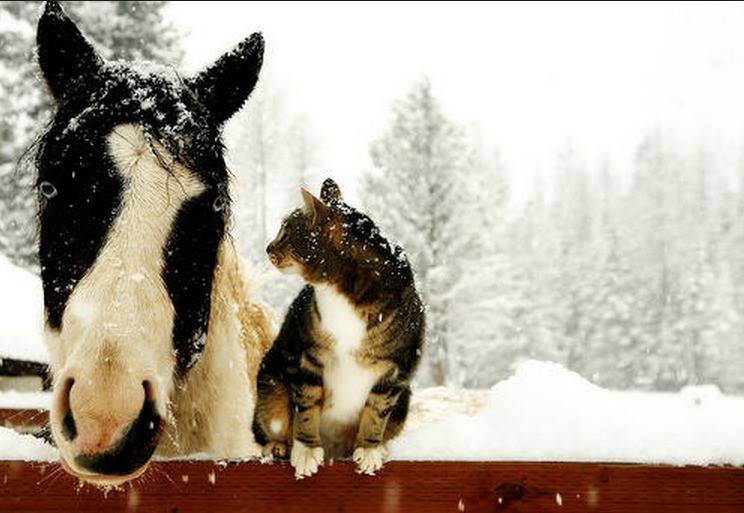 Thought for today: "Good friends, family and naturally buddies will never need persuading to stand beside you when you most need them. They will demonstrate their staying power through thick and thin. They are much more than 'fair weather' contacts in our lives, who turn up for the party and the rest of life's freebies, eat their fill and then bugger off, leaving you to do the tidying up on your own! Just the simple words of hearing them say, 'It's been great being here with you, but unless you need me to hang around a bit longer, I'll get off now', proves reassuring enough to know that you're never on your own unless you chose to be. Over the past two years since I discovered that I had a terminal blood illness, I have had to dramatically change my lifestyle. There have been times, because of having no effective immune system where even the catching of a cold or bug could amount to the contraction of a possible death sentence, when I have been housebound for weeks on end, particularly in bad weather. However, during this period of incarceration my world has widened up once more in a way I could not have known. I have literally been indunated by offers of friendship from people, not only from the village of Portlaw in Ireland where I was born, the estate of Windybank in England where I grew up, but from across the globe. It now takes many hours daily to read and reply to my e-mails, check my posts and get back to writing my latest romantic novel. I also spend around an hour a day on my 'Thought for today' as this avenue allows me to express myself in raw emotional terms and in a more conversational style about whatever is on my mind at that precise moment in time. Apart from keeping my writing skills honed, this amount of new daily contacts make me feel like I belong to a much wider group of people than I have ever known as well as making me feel a much loved person, which most of us are if we did but know it. Without leaving the house most days, by the end of it it is as though I have travelled far and wide along the path of old and new friendships. I have relearned that friendship always ends in love and understanding. I hope that whatever time I am allowed to enjoy my newfound friendships that you all can remain a part of my daily thoughts. We are all angels with one wing; hopeless in flight until we accept we aren't alone and need to embrace another in order to achieve 'lift off.' To treasure the cultivation of new friendship, we need to treat people like beautiful paintings and put them in our best light. As my dear mother used to remind me as a child, beware of taking unfair liberties with a good friend. She would say, 'Remember Billy, you can pick your friends and you can pick your nose, but you cross the line when you try to pick your friend's nose!' Have a nice day." William Forde: February 19th, 2015. 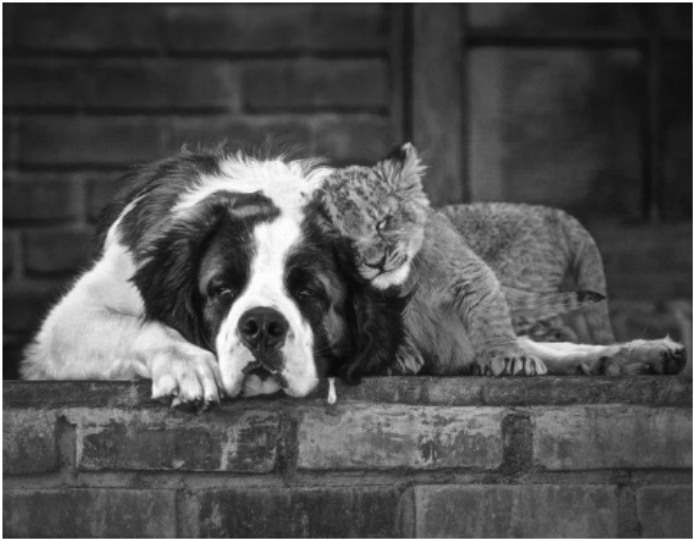 Thought for today: "Today I enter hospital again for another blood transfusion. I have been getting transfusions on a regular three-week cycle since the end of my nine month chemo treatment, but because my bone marrow has stopped functioning, I needed to attend again after one and a half weeks following my last transfusion. I must report however, that apart from feeling tired, I have had a wonderful Valentine's weekend and remain overall in a contented frame of mind. When I get too tired, I simply rest and my darling wife Sheila places her head on my shoulder and the world feels good once more. 'Contentment' is that precious thing which lives and can only be found in the beauty of the moment. Once you have it, no trick of lighting nor the brush of any artist will ever be able to disguise its presence in you. It is as though you've discovered the secret of life; namely that the world is yours for the asking, so why try to conquer it? Although contentment is prone to be influenced by external conditions, it is an internal attittude that can be cultivated whatever our circumstances. In my earlier life, a good book, a garden of flowers and a good woman beside me was all I ever needed to be content and it was only when any part of these things no longer pleased me that I changed them. It was only in later years after I'd altered my view on life and my purpose in the world that I changed my philosophy on how best to become more content with self and all around me. I learned that 'contentment' hides itself away from one's life until a place of peace and acceptance is found in the present moment. Happy is happy with or without the ever after; only the present matters. One day, I found myself queuing in a busy self service cafe on the M1 motorway where everyone seemed to be pushing and shoving their way along the line in a state of anxious impatience. It was at that precise moment that I stopped taking life too seriously all the time, in the belief that if I didn't, I'd never get out alive. Before I'd reached the end of the queue, I'd noticed that everyone in it was peering over shoulders; essentially wanting a bit of what the other chap in front had on his plate. It is a strange facet of mankind's character that we invariably want what others have and we don't. I left the queue and I am pleased to say that I never rejoined it. I gradually learned to like what I had upon my plate and eventually came to believe that prosperity and satisfaction depended more on wanting what I had than having what I wanted. In time I grew to to be more content whatever the weather or season and learned when it rained to let it rain and enjoy the experience. I discovered the simple truth that often a person is happiest when they choose to be happy. I learned that there is no point in not feeling good about good things in life and that life is something that happens when you are not asleep to all around; so wake up and smell the coffee before it's too late and the day has passed you by and your last sleep beckons. I learned that life always runs smoother when we work with the grain and this maxim holds no less truth, whether it be human nature or a lump of wood we seek to fashion. If we allow our true self to lead the way, we will be able to allow the best of our traits and character strengths to triumph over abilities we may not have. After all, we each play better the instruments we do possess than those we've never held. As contentment becomes a greater part of our daily lives, we gradually grow to know that to have enough is to be rich beyond measure and to accept that the richest person in the world is not the person who has the most, but instead the one who needs the least; for they are the one who will hunger last. I found true contentment from accepting that the loving parts of our body have no trouble loving; for that is all they were designed to do. There is no need to chase after the happiness that is always at your heels. Come to believe in the very goodness of yourself, because happiness and contentment lie within the very shadow and substance of your being. Accept what is, let go of what was and have faith in what will be; knowing that 'yours' is only what you have with you at any moment in time; no more and no less. Bye for now as I'm off out for a few more pints." William Forde: February 18th, 2015. 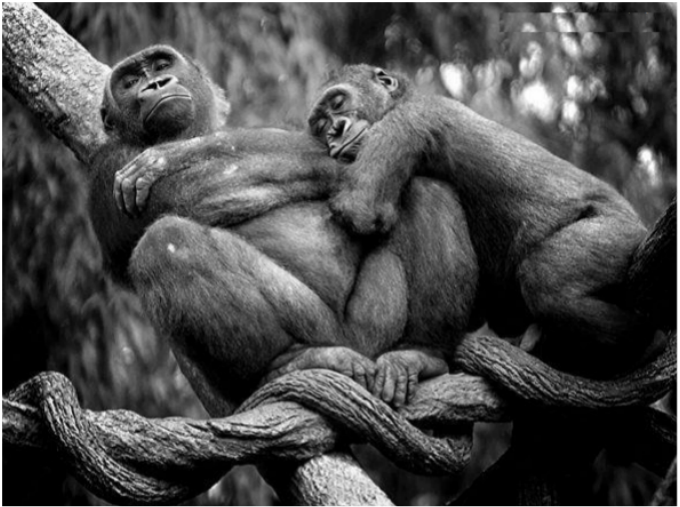 Thought for today: "Seeing this photo brought my mind to sleeping in bed with my wife Sheila. As she was born in the Chinese Year of the Monkey, I have had four and a half years practice of sleeping next to one. Incidently, if this image is reflective of me and Sheila asleep, I'm the fatter one. I often place little credence to a woman's assertion that size matters, but take it from me, it matters in bed. The bigger the bed is, the more room one has to move around. Very few married couples start off in bed sleeping apart and wake up in each other's arms, and even those who do go to sleep in each other's arms, normally wake up kissing backsides. Have you ever wondered how rock hard a woman's small derriere is compared to the much larger, and might I add, flabbier backside of a mans? What's all that about then? They say that all of us dream, but not everyone remembers having dreamt. Ever since childhood and the development of a vivid imagination, I have dreamt one kind of dream and another. I still dream vividly today and often awake with the theme of a new story to write or having solved a puzzle in one I am currently writing. As a child, the dreams I had might replay part of a western film I'd seen earlier that night and I'd wake up in a sweat with a Sioux arrow through my throat. In my teens I would frequently dream of more romantic stuff and by the time I had passed the age of majority, I dare not tell the priest in the monthly confessional box of the depravity of some of my nightly visions. Besides, I accept that in the eyes of the Catholic Church one can be guilty for having certain unwholesome thoughts during the light of day, but surely even God appreciates that one cannot be held accountable for the content of one's dreams; being in deep in sleep during the darkness of night and thereby out of control as to what one is thinking during moments of unconsciousness. During the years in between my marriages, when I lay down in bed alone, I soon realised that being single sucks. For around two years between my last marriage and my marriage to Sheila, I travelled the country far and wide meeting up with many women in similar circumstances to myself. Indeed, there was a period when I forgot that I was a man in his mid-sixties who'd tricked his aging body (which had incurred two severe heart attacks seven years earlier) to forget its limitations also. In fact, it is highly plausible that had I not met my wife Sheila when I did and thereby put a stop to my galavanting far and wide, I would not be alive now to have contracted the terminal illness I have today! Meeting, loving and marrying Sheila has provided me with a much greater dimension as to how I now view bed and going to sleep on a night. I recall the bitter contrast of earlier years when my marriage was breaking down, when bed became a prison from which there'd be no release until the following morning and the sentence was spent. I have since rediscovered the many pleasures of bed, particularly when you are in bed beside the one you love. Today I read, drink tea, talk with my partner about our day, make love, kiss, cuddle, hold hands and sleep in bed. We even scratch backs from time to time and give shoulder massages in turn. The main thing, is that the pressure to either do this or not do that is off and by golly, it makes a tremendous difference! I have found love and physical attraction in a marriage before, but now I enjoy both of these aspects, along with a deep sense of spirituality that is new to my marriage. Before marriage our relationship tended to be all passion and it is only into the marriage after it has settled that we gradually became friends and soul mates in our roles as man and wife. Finally, before I end this post I must deal with those two human traits that all know of in private, but few dare speak of in public. I refer to those less pleasant aspects of our behaviour both men and women are prone to when fast asleep; snoring and flatulance. Contrary to my wife's assertion and no doubt yours also, let me tell you that both man and woman snore and fart in equal measure. Admittedly the vast majority of women do it in much quieter tone than the men; most females do it in softness, some through the gentle intermittent squeezes of the buttocks, but all women try to do it in secret as is their nature. Let's face it chaps, the more gentle snoring of women has never bothered us unduly, but however faint a fart may be, a fart's still a fart and smells no sweeter from whence it came!" William Forde: February 17th, 2015. 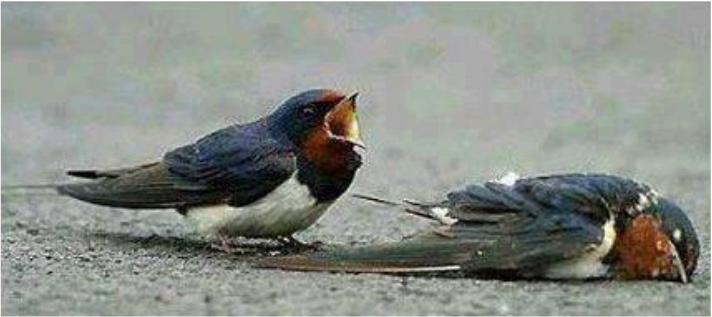 "Thought for today: "There is a certain morbidity in death that most people find hard to face until it is absolutely neccessary and yet, it need not be so if one is reconciled with the life one lives. Grief is itself a medicine that warns us to take nothing beyond today for granted and death is but that final part of life which we are all called to one day act out. Ever since the age of seventeen years, I have visited the seriously ill, disabled and dying in 'The Cheshire Homes' and a few hospices in West Yorkshire. My purpose at the time was to be with them and to share their journey in the hope that it would make the travelling of it lighter. Having been a companion to death over many years now, while I wouldn't claim to be an expert on the process of healthy grieving, I can tell you that though death leaves hurt and heartache that never fully heals, love is more powerful in the healing process by being able to leave a memory of a loved one that no one can ever steal. Over my years of visiting the dying I have never been dry eyed at their parting, especially when they have sometimes been younger than seven and merely old enough to have just lost their baby teeth. Often, after the death of a child particularly, the bereaved parents are inconsolable and seem to be the bearers of a mountain of grief they are shouldering. On such occasions of going through hell, they have no option but to keep on going, by establishing daily routines that momentarily occupy their tortured minds, crying openly when the sadness overcomes them and talking about the departure of their loved one. It is the people who love the strongest who often suffer the greatest sorrow and loss. For them, crying out their loss is beneficial. Tears seem to carry a sadness of message that speak more eloquently than ten thousand tongues. There are said to be two parts to the stages of grief. The first is loss and the second is the remaking of life. A few of the less wise ones enter into a stage of denial, hide away their loss and put on a brave face to deceive the world. Often they resist tears and put on a stiff upper lip that Victorians proudly displayed on sad occasions in order to 'behave well' in their hardest hours of grief. But such resistance to the expression of grief is futile in being unhealthy and simply unsustainable. All it takes is one fleeting memory, sight of an old love letter or scribbled note that slips from a drawer and everything collapse; the emotional dam is breached. Adults never quite know how much to tell children when they are dying or indeed, whether to tell them at all. This is very hurtful and unwise, for I tell you that though it may be the harshest piece of news you have ever told them, however sad they may be at your passing, their grief will be healthier and easier to manage. Children can live with truth, but nobody can live with a lie and most will feel worse for the deception. The process of dying and bereavement is of course much easier to cope with for the believer in a life hereafter, for earth holds no sorrow that heaven cannot heal. Around the turn of the New Millennium I felt so strongly about placing the experience of death into a proper and healthy perspective for the young that I persuaded the National Lottery to fund me writing and producing a musical play that would be suitable for children, young persons and adults. That play was from my most popular children's story book, 'Douglas the Dragon' which dealt with the theme of 'Anger Management' that I founded in 1971 and the theme of bereavement and the death of loved ones. Copies of the play and its songs were given to one thousand schools in Yorkshire and it was freely made available across the world to any school or youth organisation. This play and all its original songs that are professionally produced is freely accessible from my website by clicking http://www.fordefables.co.uk/uploads/1/0/1/5/10153721/douglas-the-dragon-play.pdf In the play, there is a speech that is given by 90-year-old Granny McNally to all the villagers who have just experienced an earthquake which destroyed their village and killed half the villagers; leaving all families bereaved and many children orphaned. I include that speech extract below: GRANNY McNALLY: (Slow, solemn and assertive delivery) “Our hearts are heavy with grief for our dead; our feelings of loss veil our pain. Even our mental images of their tragic deaths mangle our minds and press our thoughts of confusion into feelings of uncertainty for the future. Our skies seem filled with the harbinger of doom and gloom, but believe me when I tell you that the sun will shine through again!” “I’ve walked this earth for 90 years. I’ve seen all of you born and have witnessed more deaths than I care to remember. At the risk of sounding arrogant, I’ve forgotten more than most of you have yet learned. And yet, despite the extent of my age and worldly wisdom, I know so little about what lies beneath this green sod that makes the ground shake so violently when ‘The Angry Hill’ explodes in rage.” “But this I know with every breath of my being and tell you most truly. I know that sadness suffered in silence grows ever more bitter and sours the soul of humanity. I know that grief denied is grief extended and that bereavement borne alone is a cross far too heavy to bear. I urge you, one and all, do not hide away your grief from family and friends. Share your fears and sadness with them, for a burden shared is a weight lessened! Let it out. Let them see it. Let others help you to carry your loss!” “Do not conceal your pain behind false pride, good people. There is no shame in crying, no comfort to be found in silent rage and no point in trying to cope alone when others will help you willingly; and be glad to have done so. This is a time for you to share with friends and family; a time for all to rally round and to offer what we give best. This is not a time to isolate oneself from the lives of others, but a time to take part in all around you: the wisest time of all to express your feelings to those you love and trust!” “Do all of this, my dear friends, and I promise you that the light will shine through your darkest day. Follow the substance of your future. Do not dwell upon the shadow of your past. Put your past behind you and I tell you, that a brighter ‘morrow shall follow. However sad you feel today, I promise, that in time, your feelings shall change for the better. Remember, the birds shall still sing, the sun shall still shine, the grass will still grow, the flowers shall still bloom and the wind will still blow.” “Consider this, good people. Even mighty oaks have to bend to the force of nature. And then, even when they are battered and blown by the Earth’s storms; even then, experience encourages the trunk to grow ever stronger and its roots to spread ever wider. Are we no less?” “So give heed to the ramblings of an old woman. Do as I advise, and peace and reconciliation shall enter your lives once more. This I promise you. This I know!” William Forde: February 16th, 2015. 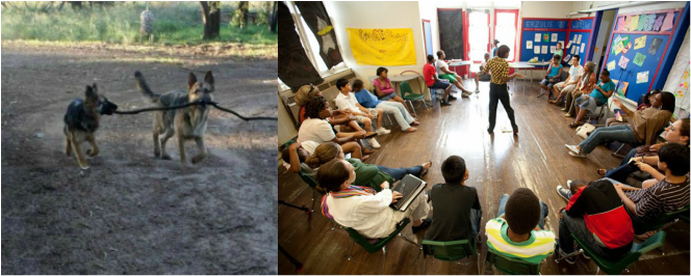 Thought for today: "Doing things together always makes the load lighter and the burden easier to carry. Finding out that others share the same problems and difficulties as oneself is often the first important step to feeling better once more and preventing depression taking root. For over twenty five years as a Probation Officer in West Yorkshire and forty years as a Group Worker, I ran hundreds of different groups in Probation Offices, Hostels, Hospitals, Psychiatric Wards, Prisons, Educational Establishments and the Community. I chose to work with all of those types of people that Probation Officers, Social Workers and Therapists prefer not to work with; the suicidal, the abused, the abusers, the addicts and essentially all those offenders who care little if they hurt or kill or if they live or die! For twenty four weeks, between thirty and forty group members would gather once a week for two hours and partake in one of my group programmes. Throughout this period they'd be known only by their first name. For the first three months, there would be no talk of the crimes they had committed or their offending behaviour pattern that blighted their lives. For the first twelve weeks, I taught them relaxation and stress reduction techniques, along with how to reduce fear levels, manage their anger and develop good sleeping practices. Our overall aim was to improve their health, happiness and health factors. I produced a special relaxation tape in the 70s and have freely given away over five thousand copies since. http://www.fordefables.co.uk/relax-with-bill.html At the time, most of my colleagues thought I was fighting a hopeless battle with these recidivists; most with hundreds of offences behind them and many with a pattern of numerous suicide attempts or years of depression and drug dependency. I knew however, that the worse their offending pattern was, the greater could be the success rate once movement in the right direction could be stirred. Paradoxically, within a space of ten years, my follow-up reseach with every offending group member I had worked with revealed a comparable success rate was just over 90% as opposed to a national average in the Probation Service of less than 30%. I mention these details not in any attempt to bloat my image, but rather to illustrate that they were 'significant' and were achieved by working in groups and focussing work on the things that really mattered to group members; namely, how to be happy, healthy and hopeful. There was no talk during the first twelve weeks of the group programme about the offences which had initially brought them to the attention of the courts. My methods of work matter not for the purpose of this post, save to say that as the founder of 'Anger Management' in 1971, I was greatly assisted by this process and procedure that I developed for working with people with high fear and anger levels, addictive behaviour patterns, involuntary problem responses and low self esteem, along with being one of the foremost relaxation trainers in the country at the time. During my many years as a Probation Officer, I formed the view that though often one-to-one working relationships are best, in the vast majority of situations, working alongside people who display similar problems 'in groups' is more effective once I was able to get them 'being together' and of a 'similar mind.' We learned as a group that sharing happiness does not decrease it; instead it makes one healthier, happier and more hopeful, besides improving one's self image. As the weeks went on we learnt a bit more about the person who sat next to us and the immediate consequence of such learning naturally led us as a group to better understand them. More importantly, we learned that 'sharing' involves listening as well as talking and always being there for one another. Through listening to their experiences during weeks 13-24 of the programme, group members taught me true humility; a necessary ingredient in the gel of union when respect needs to be restored to a relationship. There were times when their raw pain touched the tenderness of one's heart as they told their individual story. One after another spoke openly about their past once they found the confidence to express their feelings. Oten we knew what each of us were saying, even when we weren't talking. We learnt to share silence as well as words. We shared each other's pain and cried as a group when someone spoke about adults doing unspeakable things to them when they were young and vulnerable, along with having seen mothers battered by brutish husbands, having experienced their fathers sexually abuse them or even some of the Workers in the Care Homes where they were brought up who took advantage of their vulnerability as they indulged in their own sordid depravity. The rape, the abuse, the batterings, the abandonment and sometimes the killing; hearing about all these hurts, one upon another, wrenched at the pit of our stomachs as we sat in a huge circle with man and woman, woman and woman and man and man holding hands, crying both soft and loud. The experiences retold which hurt the most however, was to hear from virtually every group member that they'd never been told as children that they were loved. Neither did they ever feel loved growing up nor had felt respected as an individual of worth in their adult years...............until now..........until they'd found a 'togetherness' in the group that they'd come to value highly; a feeling of belonging that they'd never before known. We had bonded as a group of individuals and were now able to think, feel and act as one body 'together.' At its height of bonding, we were akin to the band of slaves that Sparticus turned into the finest gladitorial army that ever fought for freedom, and there were times when it literaly felt that we would have died for one another. I recall one time when a young woman whose father had raped her as a teenager openly cried when she told the group that because he had died during the many years they were separated, she would never be offered the opportunity of facing him and righteously expressing her anger for what he had done and informing him of the tragic effect it had on her. It was an astute group member who suggested that if she couldn't tell him when he was alive, then she should tell him dead. Over the coming month we ascertained the location of his grave and four group members and myself accompanied the aggrieved daughter and stood alongside her as she shouted at the skeleton beneath the sod. In this way she was enabled to bring a form of 'closure' to her early truama. And though she didn't attend her father's grave again, she nevertheless paid to have it tended, as it had become neglected over the years since his burial, having remained unvisited by all family members. 'Together' we'd learned that almost anything that is possible is doable and that in times of both good and bad as we travel through life, we need never find ourselves alone ever again if we are prepared to share our friendship, happiness and pain. 'Togetherness' had taught us that love is friendship unbound and happiness is friendhip set free!" William Forde: February 15th, 2015.  Thought for today: "Today is Valentine's Day. It is a day that was first associated with romantic love in the circle of Geoffrey Chaucer when the tradition of courtly love flourished in the 18th century. Gradually, it evolved into an occasion in which lovers expressed their love for each other by presenting flowers, offering confectionary and the sending of greeting cards, known as Valentines. As the years have progressed and the world has grown more needy, woe betide the man who fails to remember this annual occasion and who marks it any less than any other man 'she' has ever heard of. Think not upon the sending of some sweet card any longer, as that won't suffice. Unless it measures two foot by one, is too large to be delivered by Parcel Force and costs a minimum of £10 to purchase, forget it! Similarly, gone are the days of three hundred years ago when the giving of a small bag of humbugs might do to demonstrate your undying affection. Today think no less than a box of expensive chocs, which costs more and is bigger than the Valantine's Card you remortgaged your house for and got a body-builder pal to carry home for you. By late afternoon at the latest on February 14th, unless she's received a bunch of two dozen red roses which arrive conspicuously at her place of work for all her friends to see, and has attached to it a card instructing her to put on that little black dress when she gets home and showered as a table for two at the expensive restaurant of Robertos has been booked for the night, prepare to eat domestic dirt! It is a sad fact of life, but some women will always want much more than they are prepared to give. My first adult love said, 'I love you sweetheart. Take my heart, it is yours and take my lips'.........then she kept the best parts for herself and insisted upon a five-year-engagement period. Let me tell you, such a wait demanded the restraint of a man who was being pulled in all directions by four lusty stallions tethered to a body of throbbing testosterone, as arms and legs were pulled from their sockets and scattered to the four corners of the earth.. Every full moon a man magically appears to enter the dreams of all those women seeking love, as only such women know love should ever be. It is only after you have met such a special being that you really know why God created an Adam and an Eve to share forbidden fruit. No more hanging around for that occasional trip to the seaside and the clumsby fondle snatched beneath the pier. Instead you fall hopelessly in love with a man who can make the earth move under you by merely holding you in his arms and whispering. 'I love you.' It is only then that you know he is the one; the only one for you. His loving kiss stops all speech and makes all words superfluous. Your heart melts effortlessly and willingly into his stream of thought and you become as one; forever tangled in love ball of barbed wire that cannot be untwined. Whatever you have is his to have and to hold. Deep down in your dizzy spin of romantic intoxication, you always knew that love makes the world go round and now, for the very first time in your life, everything you presently feel when you are together makes it worth the ride. No more will you doubt in the everlasting beauty of pure romance. Doubt that the stars shine in the heavens if you must; doubt that the earth moves around the sun and that the moon moves the waves. Doubt all these things if need be, but do not doubt that you love and are loved in return when you find your Valentine. Happy Valentine, Sheila. Get home and get that little black dress on as we've places to go and things to do, sweetheart x."William Forde: February 14th, 2015.  Thought for today: "One doesn't have to live in the affluence of the western hemisphere in order to display imagination and potential. If someone wants something enough, they will usually find a way of getting it. Such basic instincts have been the powerhouse of all great inventions since time began. The Stone Age which lasted over three million years didn't end because they ran out of stone, but because they discovered bronze, iron and eventually metal with which to better live, hunt and work. Whether it be the man who first developed the wheel or saw the fire in flint, mankind has throughout history jumped off the cliffs of imagination and developed wings on the way down in order to create the inventions of the world. 'Give me one firm spot to stand on and I shall move the earth' has been their common cry. Within the creative of all of us lies a city of intuition. We find this place only when we are prepared to leave the city of our comfort and travel through the wilderness of our imagination to new and unknown lands. It is strange but true fact of life that mankind produces more creative results when they are bound by limitations. It's not too different from those 'wartime with rations' years between 1939-45 when people became more inventive with their gardening and cooking. I once recall being entralled by three lengthy episodes on television many years ago about John Harrison (1693-1776), who was a self-educated English carpenter and clockmaker born on my current doorstep, near Wakefield in the Shire of West Yorshire. John Harrison spent the whole of his life inventing the marine chronometer; a long-sought-after device for solving the problem of the longitude of a ship at sea and thereby revolutionising the age of sail by extending the possibility of safe travel. Indeed, to see the transformation in both size and scope of his invention from first to last of a large clock suspended on a hangman's scaffold eventually being reproduced in the shape of a small chronometer is something I shall never forget. In his lifetime's endeavour, it was as though he'd wrested the world's wherabouts from the stars and locked the secrets in a pocket watch of scientic knowledge for the benefit of all sea travellers thereafter. Only by leaving the city of his comfort and being prepared to travel his lifetime through hardship, ill health and constant debt as he persued his peak of intuition, did he reach his inventive goal. For millions of years we were hunter-gatherers and it was only through the evolutionary pressures of having to hunt for meat and foraging an existance that an adaptable and creative brain eventually emerged. Today, we stand upright with the brains of hunter-gatherers looking out on a modern world that has been made comfortable by the fruits of human inventiveness; and yet it is a world made miserable for far too many by the scandal and obscenity of deprivation in the midst of plenty. We may not all possess either the creativity or art of inventors like Harrison, but we each have pockets of imagination that we can call upon in moments of need. All we now require as a humane world is the heart to match the head." William Forde: February 13th, 2015. 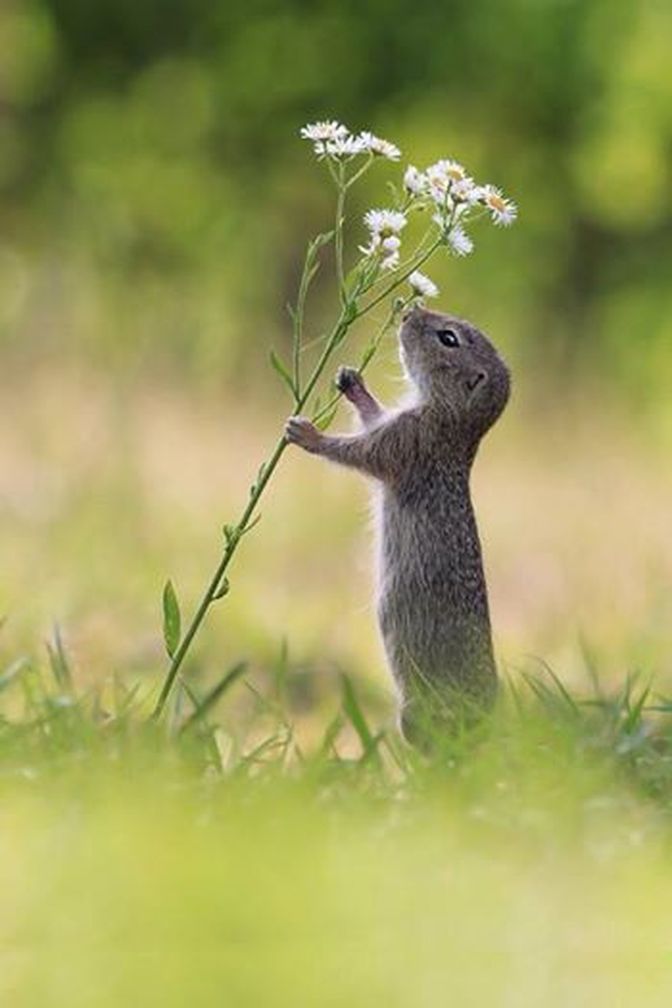 Thought for today: "If you want the opportunity to capture the magic waiting behind the morning, then better arise early, for there is a freshness which only Nature could ever bottle that is a privilege to behold and no man can distil. Morning is the best of all times; the sun is warm and not yet uncomfortably hot, sweet vapours arise from the earth, the night dew still clings to the glistening soil and though the bees and worms are already at work and the woodland creatures slowly awake, the birds call to one another in sweet song as though humans do not exist. The birds sing out their song for no other reason than they have a song to sing. I have always found early morning to be the most forgiving of times. It is that part of the day when the worries of life can be more easily forgotten, because morning knows a 'stillness' that the afternoon, evening or night can never suspect. Just as mankind needs to find God so that he can find self and then find purpose to one's existence, it is only in the stillness of the morning that we discover these things; they cannot be found in the noise and restlessness of the busy day. If ever man was to hear the voice of God, it would be in the garden at the break of day. If ever man wanted to catch Nature disrobing and revealing all her splendour, it would be during early morning at the side of a stream, in the middle of a meadow, at the base of a mountain or perhaps hidden within the cup of a flower's stamen. So when next you look upon early morning and see it in all its glory, remember how good this is because you will lose it at the end of your day." William Forde: February 12th, 2015. 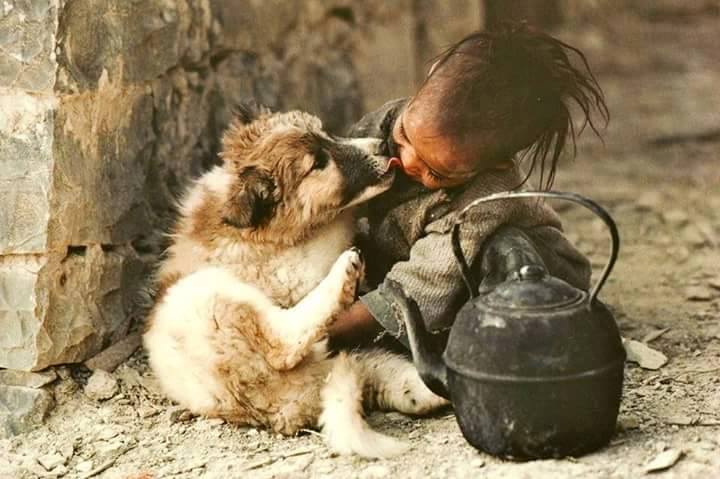 Thought for today: "Even in the poorest of circumstances, springs forth the kindest of deeds. We are but a part of all we've met, the mould and creatures of all we've done. The infinity of joy comes from knowing that compassion is at work in one's life in spite of one's circumstances. Though circumstances are beyond human control, our conduct remains within our own power. The guide to being a good person is to hold a philosophy that holds fast to all occasions. Essentially, in order to 'feel good' we must 'be good' because 'being good' to others is the only insurance policy we will ever need. Every sunrise an invitation for us to get up out of bed and brighten someone's day. As a lover of fine art and antiques, I had to learn that if I needed to possess it and could not bear to give it up, then it wasn't worth owning. I have had to learn over the years to battle with my selfishness if I wanted my generosity to grow. I had to develop the practice of learning to give away the things I treasured in order to increase their value in my life and the lives of others. This required much practise on my part, but became easier once I started to understand that it's the heart that does the giving; the fingers merely let go. It therefore falls to each of us, that upon finding our lives out of balance, to summon up the courage to correct it. If we want to build up a reputation for generosity, we will find that we cannot buy it cheap, and until we give of ourselves we can never truly give at all. I once knew a man whom everyone who met him dearly loved and admired. His secret was that he always gave more of himself than was either expected or asked for and always took less than was offered. In my life I have found that the greater part of our happiness or misery depends upon our dispositions and not our circumstances. As someone who worked for charitable organizations for over thirty years, I can honestly say that the greatest generosity I have known has always come from the poorest section of society. It seems to be a universal truth that those who possess the least, invariably give the most. It is as though God made the prime function of the poor in life to never stop exercising their generosity. Indeed, I might go so far as to say that to make the poor materially too prosperous would place their lives out of balance, for true generosity is too frequently eaten up by prosperity and wealth when greed steps in. Between the years of 1989 and 2004, I visited and held story-telling assemblies in over two thousand Yorkshire schools. I can tell you that the greatest lesson I ever saw taught by the overwhelming majority of our teachers during this time was when they encouraged their pupils to give to those who were in greater need than themselves. In my eyes, though all other lessons on the educational curriculum were of undoubted value to their pupils' future and character development, none matched the importance of learning to give of oneself; for it is only through the act of freely giving to another that we can become the good people that we are meant to be. The good know that service to others is God's rent for the room we are leased on earth. Too often it can be more convenient to close our eyes, deafen our ears and shield our hearts to the suffering around us and to leave it to others as we walk on by. Once I saw something that was obviously wrong and wondered why someone didn't do something to help; then I realised I am 'somebody.' That great man Mahatma Ghandi told us that 'The best way to find yourself is to use yourself in the service of others.' Goodness is about integrity, honesty, kindness, generosity and moral courage, but more than anything it is how we treat people. It is easier to bestow these gifts on people we know and love than those we dislike and distrust. Therefore, to give to our enemies is the most bountiful generosity of all. The greatest of all gifts that we can bestow is love, concern and compassion towards all who suffer and come our way. Since we cannot do good to all, we should pay special attention to those who, by the accidents of time, place or circumstances are brought into closer connection with us. We must learn to plant trees under whose shade we might never sit as we learn to do for others instead of self more often. We should take personal responsibility for our actions, for though we cannot change the moon, stars, seas, tide, wind or seasons, we can, if needs be, change ourselves." William Forde: February 11th, 2015. 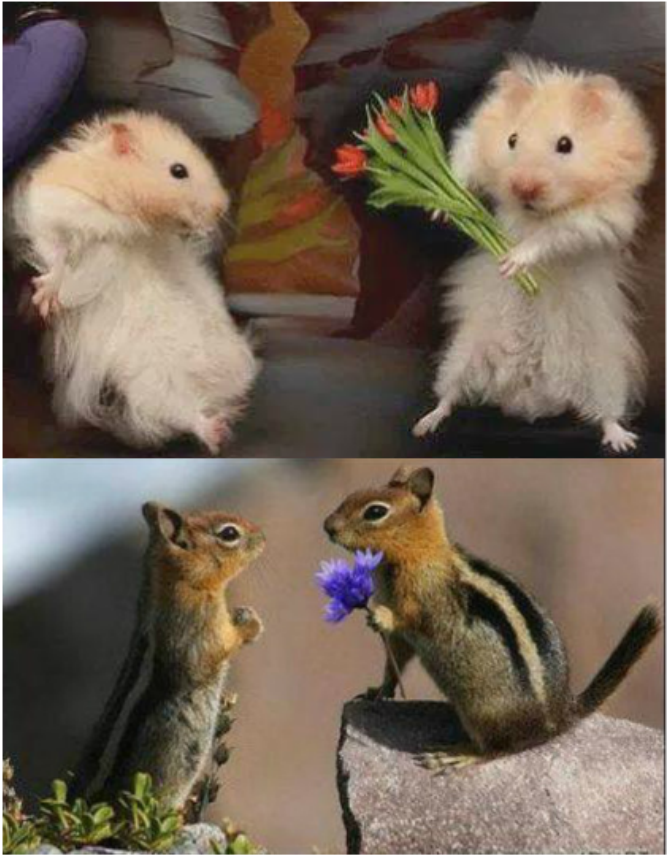 Thought for today: "There is only one way to say it and to say it as though you mean it; and that is to say it with flowers. When we say it with flowers, we ask, 'Be my life.' In times of joy or sadness, flowers remain our constant friends. By saying a simple, 'Thank you' they whisper beauty to the world; by saying, 'I love you' they stir one's soul and drown one's senses in a well of loving emotion. By saying, 'Goodbye, dear friend' they enable 'closure' to be found in the passing of a loved one from this life to the next. How many of our dear mothers past invoked us to put flowers in their hands whilst they lived instead of on their grave when they could no longer smell them? My youngest brother Michael is the prime tender of my parent's grave in Heckmondwike and he is prone to plant instead of place them in their papered bunches. I find this act to be a wonderful deed by a mother's son. I believe Michael's living floral tribute to be no less than sunshine food and medicine for the soul and cannot regret that flowers now grow on my parent's grave where only dirt once used to be. I remember a dearly departed friend of mine, the television presenter of 'Gardener's World', the late Geoffrey Smith saying over lunch one day, 'We are only here on this earth for a short visit, Bill, so don't waste the journey. Don't hurry, don't worry; just enjoy......... and be sure to smell the flowers along the way.' Before Geoffrey died I jointly composed a song for him and after he'd heard it, he urged me to turn it into a hymn. This I did and had it sung at my wedding to Sheila on November 11th, 2012. It is the only hymn that I have and ever will write and compose and is entitled, 'Be my Life.' William Forde: February 10th, 2015. http://www.fordefables.co.uk/be-my-life.html 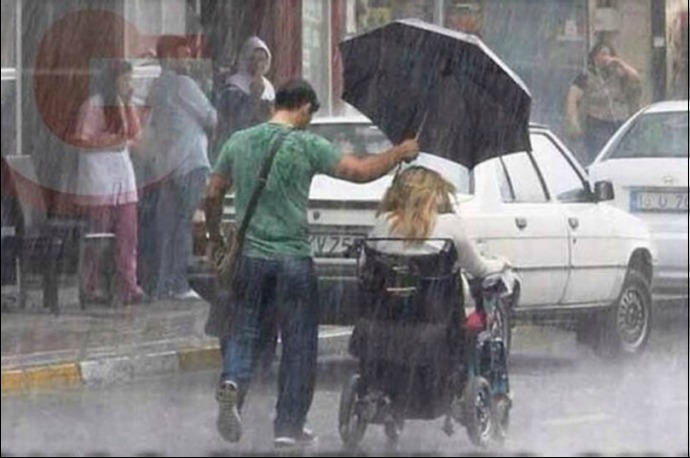 Thought for today: "Caring about people and creatures in this world is more a reflection of maturity than an act of kindness. Every creature should have a caring child as a friend, every child should have a caring adult in their life and every adult should allow the caring child in them to live on forever. We should never be too proud to let people care for us when we are no longer able to care for ourselves because people both need to care and feel cared for.The closest thing to being cared for is to care for someone else. Being cared for is often a strange thing to readjust to. Sometimes we expect to be cared for and on other occasions the sincere and kindly act of another takes us by complete surprise. Imagine attending the health Centre or local hospital and presenting them with some ailment or illness that caused you great pain and the doctor upon hearing you says, '! don't care!' Or suppose that you fell down in the street and a complete stranger comforted you, called an ambulance, went to the hospital with you and stayed with you over four hours until they were reassured that you could now manage without them. Because we expect doctors and the 'caring professions' to care, when they don't we feel aggrieved. However, because we have come to expect most people in their pressurised day not to have time to give a damn about others, when any manner of kindness is shown to us by a stranger who chooses 'not to walk on by our predicament,' we are overwhelmed by their willingness to care. I have gradually found that if you want love to enter your heart and if you truly care, then you have to give a damn about what's going on around you. Taking an interest in others increases willingness to care. Besides, the best way to start caring for self is to start caring for others. We have all heard the saying that we can stand being loved, we can stand being hated, but never ignored. The reason for this is that when we are ignored as a person we become acutely aware that people don't care about us and it is this feeling of 'not feeling cared for' which sadly leads many people, both young and old, to commit suicide or to self harm. Never believe that a few caring people cannot change the world; for indeed, that's all who ever have. Never deny the influence of the goodness that surrounds you or the degree that one person will go out of their way to help another because they care. Too often in a mistaken world of materialism and the search for personal profit, the significance of the simple is sadly undervalued. Too often we underestimate the power of a single touch, a soft smile, a kind word, a listening ear, an honest compliment or the smallest act of caring; all of which possess the potential to turn a life around and to move one on to new places." William Forde: February 9th, 2015. 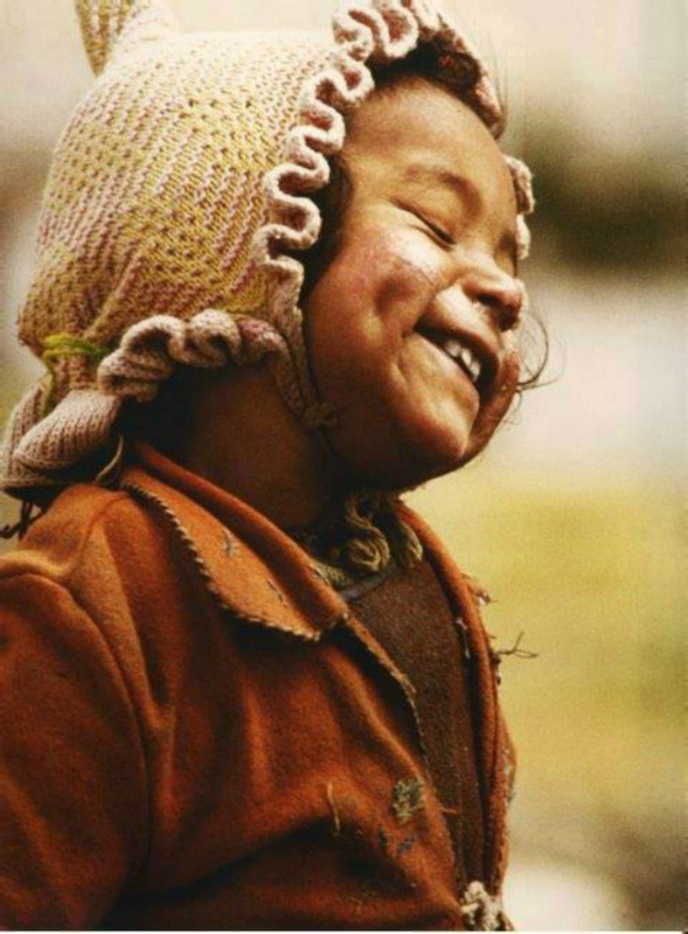 Thought for today: "True happiness lies within the soul and never without the body. It cannot be touched, yet is felt by all whom it touches. True happiness enables one to enjoy the present without anxious thought and dependence on the future. It enables one to live a lifetime in one moment of contentment. It is found in freedom and fulfilment and we achieve it when we squander ourselves for a purpose that we know to be beneficial to others. True happiness cannot exist in splendid isolation as it requires to be shared by others to grow. It has to be released from self if it is to be increased in others. There would be no point of a heaven were no one else but God allowed entry. True happiness is a state of mind and comes from the joys of deeds well done for the lasting benefit of more than self." William Forde: February 13th, 2018. |
|
